MOSCOW, Jan 31 (Reuters) - Authoritarianism increased last year in Russia to levels unseen since the Soviet era with a raft of harsh laws curbing political freedoms and harassment of opposition activists and critics, Human Rights Watch said on Thursday.
The harsh crackdown coincided with the return of Vladimir Putin to the Kremlin and the appointment of his predecessor and protege Dmitry Medvedev as prime minister, according to the New York-based HRW.
"Since Putin's return ... not only has the tentative shift towards liberalisation of the Medvedev era been totally reversed, but also authoritarianism in Russia has reached a level unknown in recent history," said Rachel Denber, deputy director of the group's Europe and Central Asia Division.
Speaking at a news conference in Moscow accompanying the publication of its annual report on human rights worldwide, Denber also criticised the government's stance toward the West.
Since Putin started a six-year term in May, he has signed laws restricting protests, demanding foreign-funded non-governmental organisations register as "foreign agents", and setting new rules on treason that critics say could place almost anyone who associates with foreigners at risk of prosecution.
Several opposition leaders and activists face potential prison terms if convicted on charges Putin's critics say are trumped up. The president's spokesman has denied the Kremlin uses courts and police to pressure critics.
"Measures to intimidate critics and restrict Russia's vibrant civil society have reached unprecedented levels," Hugh Williamson, director of HRW's Europe and Central Asia Division, said in a statement.
"Pressure and reprisals against activists and non-governmental organizations need to stop."
"This has been the worst year for human rights in Russia in recent history," he said of 2012. The statement said the Kremlin "unleashed the worst political crackdown" since the breakup of the Soviet Union in 1991.
On Thursday evening, Moscow police dispersed protesters and detained about 30 activists who tried to demonstrate for the right to free assembly, which they say is routinely violated by the government.
Russian Foreign Ministry spokesman Alexander Lukashevich said he had not read the report but that Russia would probably comment later and "show that the human rights situation in Russia is not the worst."
He said the Russian ministry's own annual reports have shown that "there are serious systemic problems in the sphere of human rights in the United States and many European Union countries.
"Before you criticise others, you should look at yourself," Lukashevich said at a weekly briefing.
Original Article
Source: huffington post
Author: Alessandra Prentice
The harsh crackdown coincided with the return of Vladimir Putin to the Kremlin and the appointment of his predecessor and protege Dmitry Medvedev as prime minister, according to the New York-based HRW.
"Since Putin's return ... not only has the tentative shift towards liberalisation of the Medvedev era been totally reversed, but also authoritarianism in Russia has reached a level unknown in recent history," said Rachel Denber, deputy director of the group's Europe and Central Asia Division.
Speaking at a news conference in Moscow accompanying the publication of its annual report on human rights worldwide, Denber also criticised the government's stance toward the West.
Since Putin started a six-year term in May, he has signed laws restricting protests, demanding foreign-funded non-governmental organisations register as "foreign agents", and setting new rules on treason that critics say could place almost anyone who associates with foreigners at risk of prosecution.
Several opposition leaders and activists face potential prison terms if convicted on charges Putin's critics say are trumped up. The president's spokesman has denied the Kremlin uses courts and police to pressure critics.
"Measures to intimidate critics and restrict Russia's vibrant civil society have reached unprecedented levels," Hugh Williamson, director of HRW's Europe and Central Asia Division, said in a statement.
"Pressure and reprisals against activists and non-governmental organizations need to stop."
"This has been the worst year for human rights in Russia in recent history," he said of 2012. The statement said the Kremlin "unleashed the worst political crackdown" since the breakup of the Soviet Union in 1991.
On Thursday evening, Moscow police dispersed protesters and detained about 30 activists who tried to demonstrate for the right to free assembly, which they say is routinely violated by the government.
Russian Foreign Ministry spokesman Alexander Lukashevich said he had not read the report but that Russia would probably comment later and "show that the human rights situation in Russia is not the worst."
He said the Russian ministry's own annual reports have shown that "there are serious systemic problems in the sphere of human rights in the United States and many European Union countries.
"Before you criticise others, you should look at yourself," Lukashevich said at a weekly briefing.
Original Article
Source: huffington post
Author: Alessandra Prentice

No comments:
Post a Comment